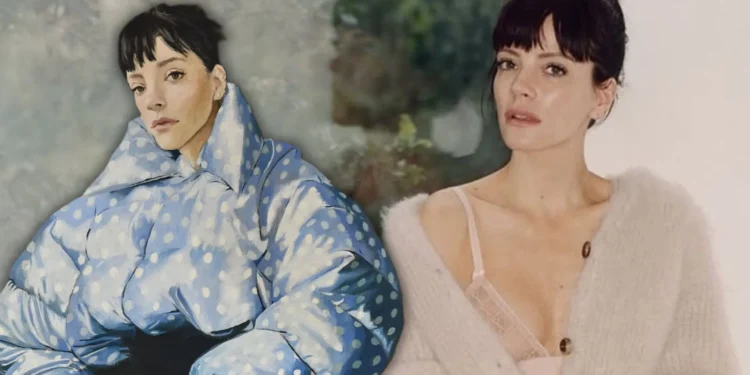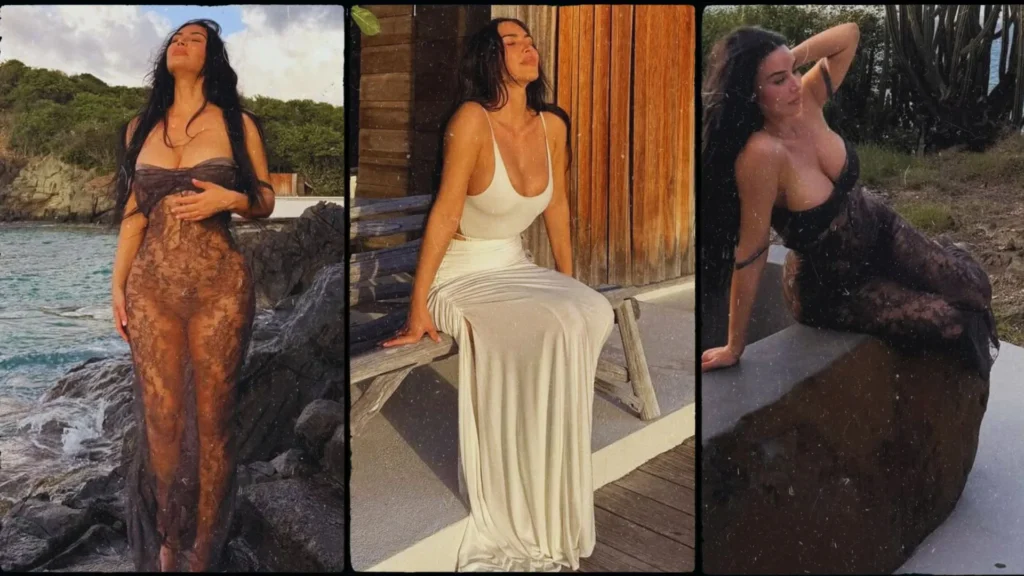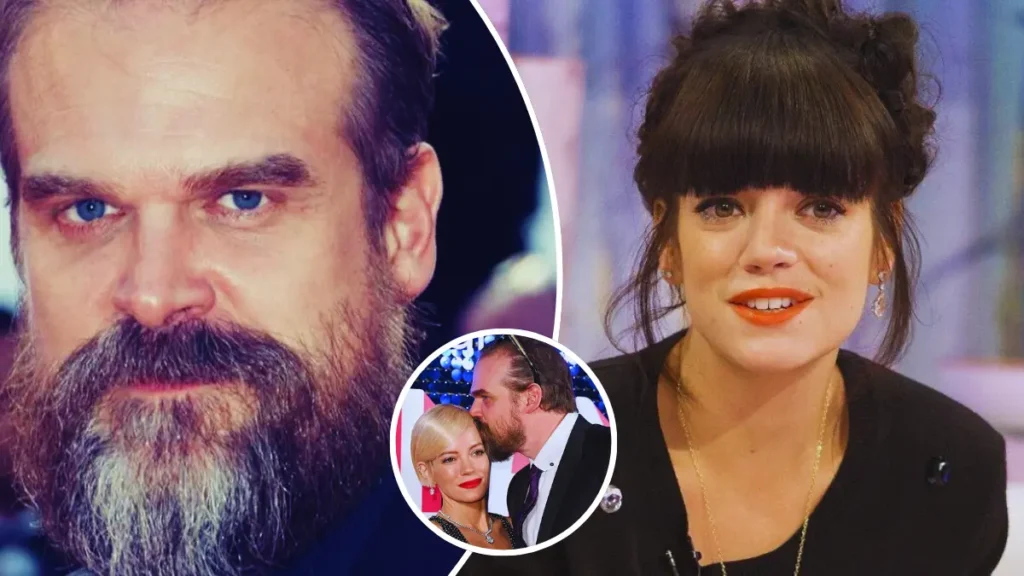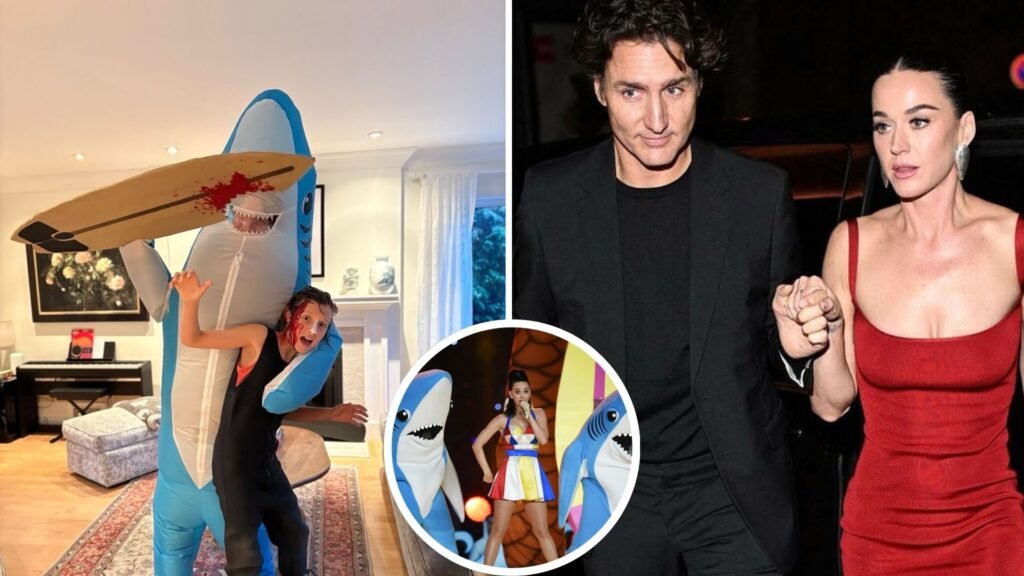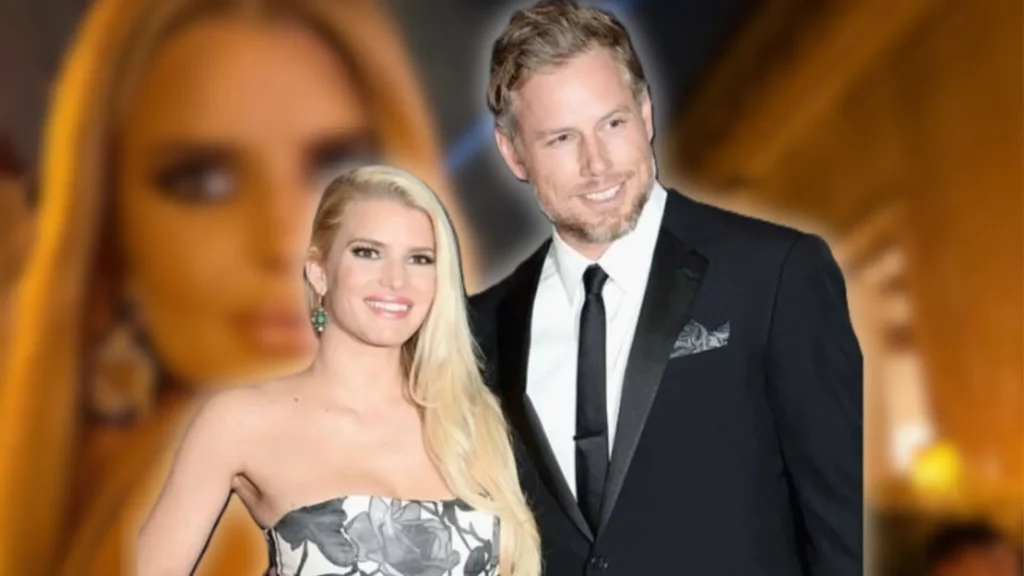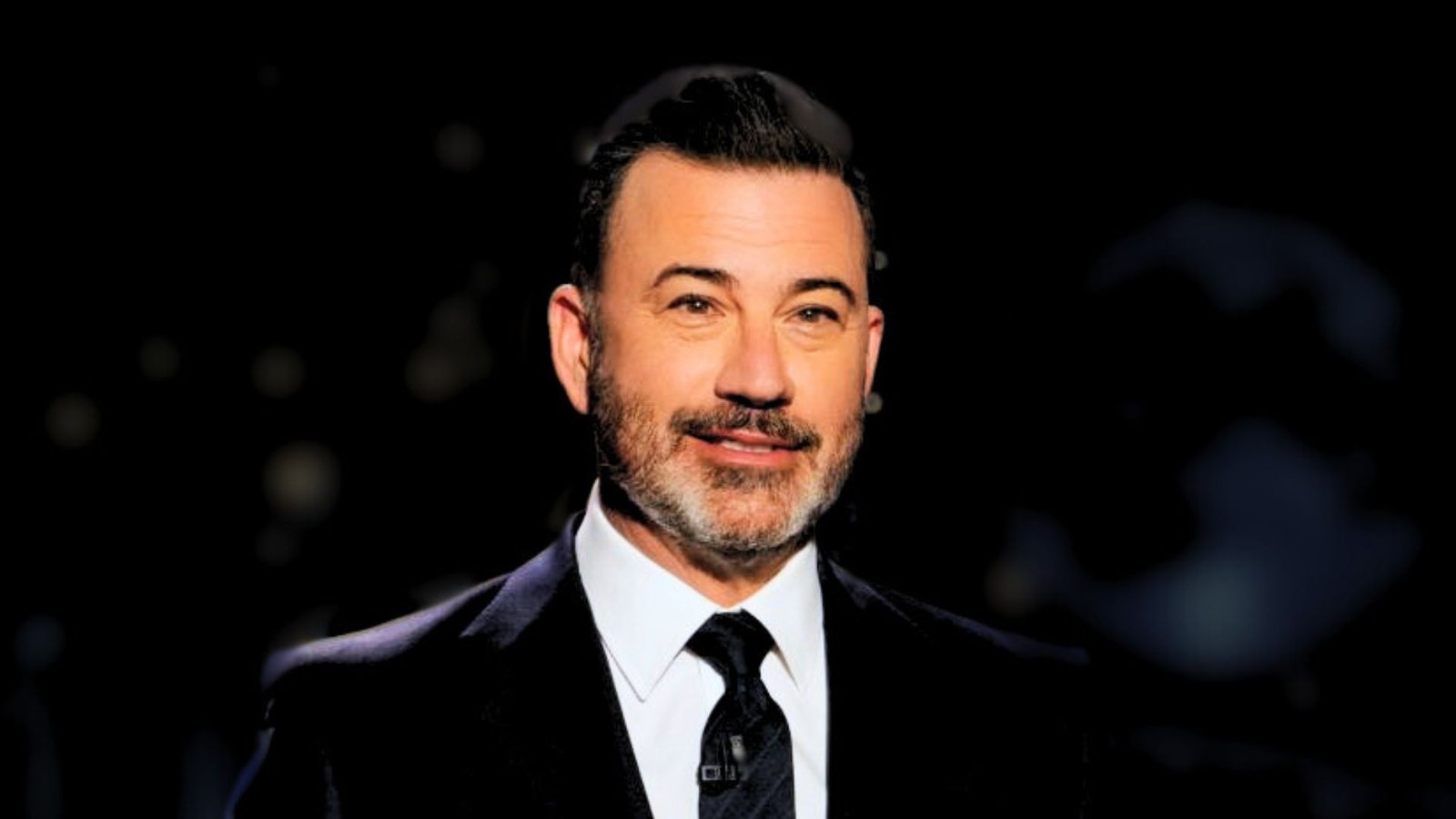In a musical gut-punch that’s already shattering Spotify playlists and Hollywood dinner parties alike, Lily Allen has roared back from a seven-year silence with West End Girl, her most blistering album yet. Dropped just yesterday on October 24, this isn’t your garden-variety pop comeback—it’s a lyrical Molotov cocktail lobbed straight at her estranged husband, David Harbour, the brooding Stranger Things star whose alleged infidelities have turned their once-open marriage into tabloid fodder. As Lily Allen lays bare the raw wounds of love, lust, and London heartbreak, fans are left wondering: Is this the end of an era, or the savage start of Lily Allen’s unapologetic reinvention?
Picture this: It’s a crisp autumn evening in New York, and Lily Allen—the pint-sized powerhouse behind hits like “Smile” and “The Fear”—steps onto a dimly lit stage at a pop-up signing event, her signature cheeky grin masking the storm beneath. Draped in a slinky satin mini dress that hugs her curves like a second skin, she autographs vinyls of West End Girl while whispers ripple through the crowd. “Your demeanor changed,” she croons softly to one fan, echoing a killer line from the album’s standout track “Girls in Your Bed.” The room erupts. In that moment, Lily Allen isn’t just signing records; she’s signing off on a chapter of her life that imploded spectacularly earlier this year. And with streams surging past 5 million in the first 24 hours, it’s clear America—and the world—is hooked on her heartbreak.
For U.S. fans who’ve idolized Lily Allen since her 2009 stateside breakthrough with It’s Not Me, It’s You, this release feels like a long-awaited therapy session we’re all eavesdropping on. The British songbird, now 40 and fiercer than ever, has traded her cheeky Britpop for something darker: a confessional opus blending electro-pop hooks with the brutal introspection of a post-divorce diary. Clocking in at 12 tracks and 42 minutes, West End Girl isn’t subtle. It’s a sonic autopsy of Lily Allen’s marriage to David Harbour, the 50-year-old Russian-accented heartthrob who captured her heart in 2019. What started as a whirlwind romance—think red-carpet smooches at the Golden Globes and blended-family bliss with her daughters Ethel and Darcy from ex Sam Cooper, plus his daughter from a previous relationship—crumbled under the weight of an “open” arrangement gone horribly wrong.
The Genesis of Lily Allen’s Hiatus: From Stage Lights to Stepmom Spotlights
To understand the seismic shift in West End Girl, we need to rewind. Lily Allen’s last album, No Shame, dropped in 2018 amid personal turmoil: battles with addiction, postpartum depression, and the pressures of motherhood. It was a vulnerable pivot from her party-girl persona, earning Grammy nods but leaving her creatively drained. By 2019, she’d hung up her mic for Broadway, starring as the iconic Hollywood sex symbol in 2:22 A Ghost Story—a role that netted her an Olivier Award and introduced her to David Harbour at an afterparty. Sparks flew fast; they married in Vegas that September, a shotgun ceremony complete with Elvis impersonators and zero regrets.
For Lily Allen, stepping into Harbour’s world meant trading London’s indie scene for Hollywood’s glare. She became the ultimate stepmom, shuttling between sets in Atlanta for Stranger Things Season 4 and family hikes in the Hollywood Hills. “I’ve never been happier,” she gushed in a 2022 Vogue profile, crediting Harbour’s “grounded American energy” for her stability. But whispers of strain emerged by late 2023: Reports of heated arguments at industry bashes, her cryptic Instagram posts about “boundaries blurred,” and Harbour’s increasingly frequent solo jaunts to Europe. Insiders close to the couple told People magazine that their open marriage—meant to foster trust—backfired spectacularly. “Lily Allen thought it was a safety valve,” one source spilled. “Instead, it blew up the whole damn house.”
The divorce filing hit in March 2025, citing “irreconcilable differences” in Los Angeles Superior Court. No messy custody battles—yet—but the ink was barely dry when Lily Allen retreated to a rented cottage in the Cotswolds, her childhood stomping grounds. There, amid rainy walks and endless cups of PG Tips, she penned West End Girl. Co-produced with rising electronic whiz Kid Harpoon (of Harry Styles fame), the album fuses Lily Allen’s signature wit with pulsating synths and strings that evoke a West End musical gone rogue. It’s her most sonically adventurous work, channeling influences from Amy Winehouse’s jazz-funk edge to Taylor Swift’s post-breakup precision—minus the Easter eggs, because Lily Allen doesn’t do subtle shade.
Also Read: Rapper Jim Jones Admits He Took His 16-Year-Old Son to a Strip Club — “I Wanted Him to Learn Early”
Track-by-Track: Lily Allen’s lyrical scalpel on David Harbour’s Downfall
If West End Girl is Lily Allen’s revenge tour, then the tracks are her ammunition. Opener “Curtain Call” sets the scene with a haunting piano riff: “Spotlights fade, but the lies don’t die / You chased the applause, left me high and dry.” It’s a nod to Harbour’s career highs—his Emmy buzz for Hellboy—juxtaposed against their domestic unraveling. But the real fireworks ignite midway, on “Girls in Your Bed,” a slinky electro-banger that’s already TikTok’s viral villain. Lyrics like “Your demeanor changed when she walked in the frame / Perfume on your collar, but it ain’t my name” paint a vivid picture of discovery. Fans speculate it references a mysterious brunette spotted with Harbour at a Berlin film festival in February, mere weeks before the split.
Then there’s “Open Wounds (For an Open Heart),” a piano ballad that dissects their non-monogamous pact. Lily Allen croons, “We said we’d share the keys, but you changed the locks / Invited the world while I picked up the rocks.” It’s poetic devastation, blending vulnerability with venom—classic Lily Allen. Critics are calling it her “All Too Well,” that 10-minute Swiftian epic of emotional excavation. And let’s not gloss over “Name Drop,” the album’s cheekiest cut, where she allegedly outs the “other woman” with a thinly veiled moniker: “Call her Elara, queen of the shadows / Stole my king, now she’s wearing his halo.” Elara? A quick Google points to an up-and-coming indie actress who co-starred with Harbour in a Netflix thriller last year. Coincidence? In Lily Allen’s world, probably not.
The back half lightens up—sort of. “Smile (Reprise)” flips her 2006 debut into a defiant anthem of self-love, while closer “West End Waltz” imagines a solo strut through London’s theater district: “No more encores with you, darling / This girl’s dancing alone.” At a press junket yesterday, Lily Allen teased Variety: “This album is my exorcism. David Harbour gets to keep the house in the Hills; I’m taking back my voice.” Ouch—and bravo.
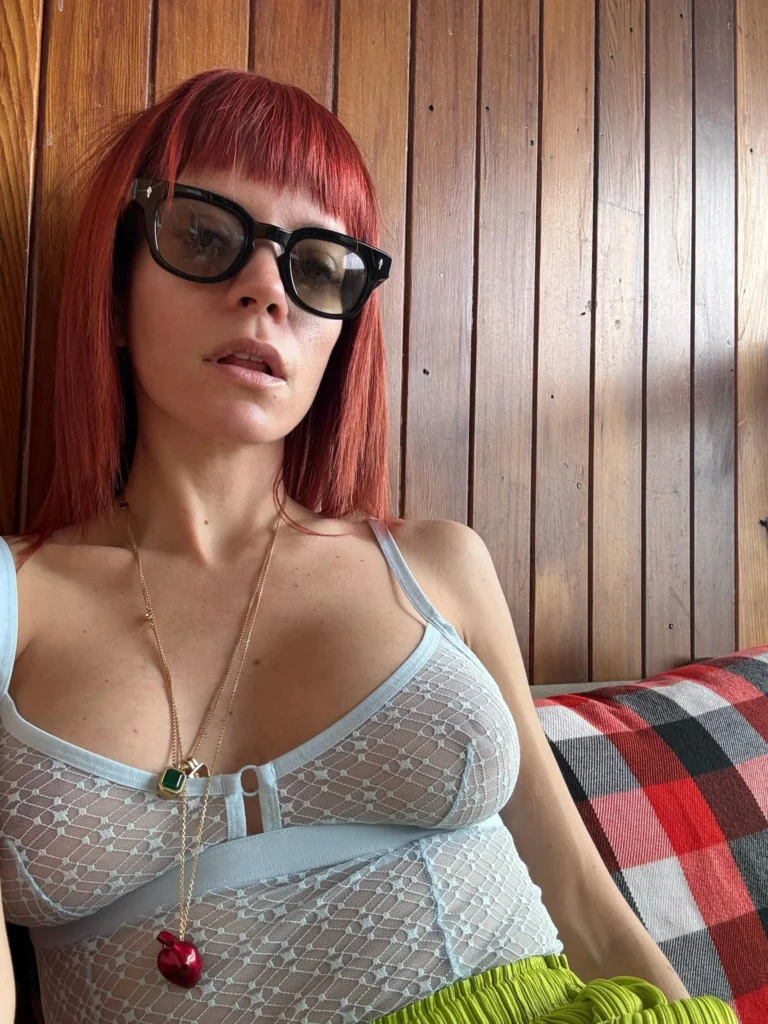
Critical Acclaim and Fan Frenzy: Is West End Girl Lily Allen’s Magnum Opus?
The ink’s still wet on reviews, but early verdicts are glowing. The Guardian hails it as “a scathing Broadway breakup symphony,” awarding four stars for its “vicious honesty that slices deeper than any tabloid.” Over at Rolling Stone, it’s a “savage pop reckoning,” with Ann Powers praising how Lily Allen “turns personal carnage into communal catharsis.” Stateside, Billboard clocks it at No. 1 on iTunes in 12 countries, including a U.S. debut that’s outpacing even Olivia Rodrigo’s latest. For a 40-year-old mom of two who’s been off the charts for years, that’s not just a win—it’s a wildfire.
On X (formerly Twitter), the discourse is electric. “Lily Allen just eviscerated David Harbour and I’m here for every verse,” tweets @PopCrave, racking up 50K likes. Memes abound: One viral edit mashes “Girls in Your Bed” over Stranger Things clips of Harbour’s Demogorgon fight, captioned “When Lily finds out about the Upside Down side chick.” But not all reactions are cheers. Harbour’s loyalists are firing back, with #TeamDave trending briefly: “Open marriage means open eyes—Lily Allen knew the rules,” snarks one user. A Lily Allen stan counters: “Rules? This is revenge poetry at its finest.” The divide mirrors broader celeb breakup battles, from Taylor vs. Kanye to Ariana vs. Dalton—raw, real, and riveting.
Lily Allen’s signing event last night only amplified the buzz. Held at a chic SoHo vinyl shop, it drew A-listers like Florence Pugh (a rumored collaborator on a remix) and Halsey, who posted an Insta Story: “Queen of spilling tea without the T. Stream West End Girl or perish.” Lily Allen, ever the firecracker, bantered with fans about motherhood mid-chaos: “Divorce is like touring with toddlers—exhausting, but you come out stronger.” Her look? That aforementioned mini dress in emerald green, paired with thigh-high boots and a choker necklace etched with “Fearless.” At 5’2”, she owned the room, proving size has nothing on swagger.
Beyond the Breakup: Lily Allen’s Hollywood Horizon and Cultural Ripple
So, what’s next for Lily Allen post-West End Girl? Whispers of a U.S. tour are swirling—think intimate venues in LA, NYC, and Nashville, blending album cuts with classics. She’s already teased a Saturday Night Live slot in November, potentially with Harbour’s Stranger Things co-star Millie Bobby Brown as a guest. Acting gigs? Her Broadway chops could land her a juicy role in Ryan Murphy’s next Netflix series, sources say. And don’t sleep on collabs: Rumors swirl of a feature with Billie Eilish on a deluxe edition track exploring female rage.
This album arrives at a cultural inflection point. In an era of #MeToo reckonings and polyamory podcasts, Lily Allen’s takedown of a “progressive” open marriage gone toxic feels prescient. It’s not just gossip; it’s a mirror for anyone who’s loved and lost in the spotlight. As she told The New York Times in a pre-release sit-down, “I wrote this for the women who’ve been gaslit into silence. Lily Allen doesn’t do quiet anymore.” For American audiences, it’s a reminder that British wit translates universally—especially when laced with universal pain.
David Harbour, meanwhile, has gone radio silent, last spotted hiking Runyon Canyon solo. His reps issued a curt “no comment” on the album, but insiders hint at a memoir in the works—his side of the story. Will it be a mea culpa or a counterpunch? Stay tuned; Hollywood loves a sequel.
As West End Girl climbs charts and cracks hearts, one thing’s crystal: Lily Allen isn’t fading into footnotes. She’s rewriting her narrative, one savage lyric at a time. Stream it now on Spotify, Apple Music, or wherever you drown sorrows in sound. Because in the game of celebrity thrones, Lily Allen just claimed hers—and she’s not sharing.

